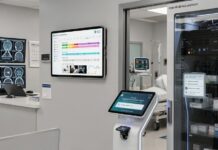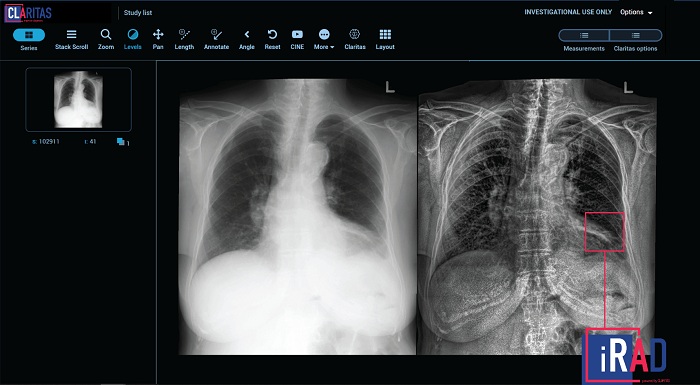Radiology Image Enhancement Cloud-Based Platform (Claritas iRAD) proprietary software, an image enhancement process that preserves the finest details by individually enhancing each pixel to produce an image of high precision
With a mission to empower radiologists and medical professionals by improving the image clarity for all types of radiology images, Singapore-based healthcare software company, Claritas HealthTech Pte Ltd, on 8 September 2020, announced the launch of their proprietary software, Claritas iRAD.
Diagnostic errors in medicine are a longstanding problem and imaging plays a pivotal role in the diagnostic process for many patients. With estimates of average diagnostic error rates ranging from 3% to 5%, there are approximately 40 million diagnostic errors involving imaging annually worldwide. Moreover, in the face of COVID-19, digital transformation has been accelerated in many areas of healthcare, and the need for greater efficiency and responsiveness has become even more urgent. From identifying cases to determining the diagnosis at the very start of a patient’s journey, rapidly changing circumstances in healthcare today will inevitably place more demand on radiology departments.
To overcome the shortcomings of the existing technology available, a team of imaging specialists, scientists and mathematicians at Claritas HealthTech, have developed Claritas iRAD and engineered an image enhancement process that preserves the finest details by individually enhancing each pixel to produce an image of high precision. Whether unclear due to radiation, low light or tissue absorption, the unique methods at Claritas HealthTech greatly improves clarity, without distorting, exaggerating or compromising the details of the original image.
Claritas iRAD can be seamlessly integrated into any of the existing radiology platforms, such as PACS (Picture archiving and communications systems) Viewer, to support better workflow. Additionally, as the platform is accessed through the Cloud, Claritas HealthTech provides fast image processing at a user-friendly level, with no need for lengthy and complex training, even for first-time users.


















